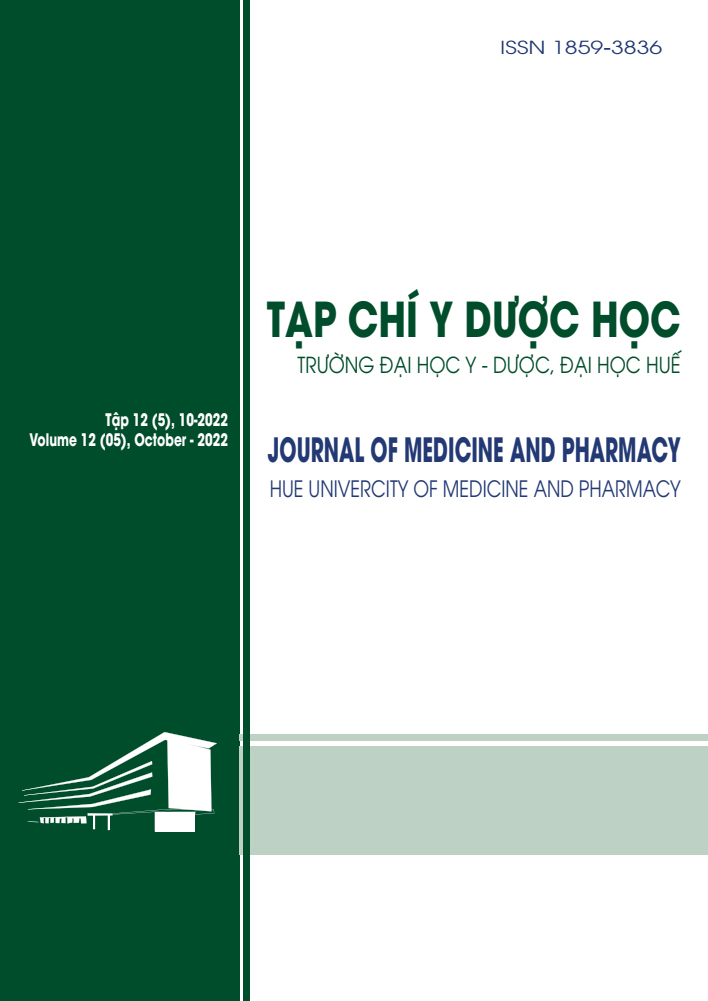Tóm tắt
Đặt vấn đề: Tình trạng viêm đường thở, đặc trưng bởi bạch cầu ái toan máu, là một đặc điểm của đợt cấp bệnh phổi tắc ngẽn mạn tính (BPTNMT). Nhận thấy tầm quan trọng của bạch cầu ái toan đối với trình trạng viêm đường thở ở đợt cấp BMTPMT, chúng tôi tiến hành nghiên cứu này với hai mục tiêu: 1. Mô tả đặc điểm lâm sàng và cận lâm sàng của bệnh nhân mắc đợt cấp bệnh phổi tắc nghẽn mạn tính; 2. Đánh giá mối liên quan giữa bạch cầu ái toan máu với thời gian nằm viện của đợt cấp bệnh phổi tắc nghẽn mạn tính. Đối tương và phương pháp nghiên cứu: Nghiên cứu mô tả cắt ngang trên 100 bệnh nhân có tiền sử chẩn đoán BPTNMT nhập viện vì đợt cấp BPTNMT. Kết quả: Bệnh nhân có BCAT máu < 2% có thời gian nằm viện dài hơn nhóm có BCAT máu ≥ 2% (lần lượt là 9,77 và 8,26 ngày) (p < 0,05). Nhóm có BCAT máu < 100 tế bào/μL có thời gian nằm viện trung bình dài hơn so với nhóm bệnh nhân có BCAT máu 100 - 300 tế bào/μL và cao hơn nhóm có BCAT máu > 300 tế bào/μL (lần lượt là 10,07 ngày, 8,26 ngày và 7,04 ngày)(p < 0,01). Kết luận: Có mối liên quan giữa BCAT máu với thời gian nằm viện ở bệnh nhân đợt cấp BPTNTMT. Bệnh nhân có bạch cầu ái toan thấp có thời gian nằm viện dài hơn| Đã xuất bản | 25-09-2024 | |
| Toàn văn |
|
|
| Ngôn ngữ |
|
|
| Số tạp chí | Tập 14 Số 5 (2024) | |
| Phân mục | Nghiên cứu | |
| DOI | 10.34071/jmp.2024.5.13 | |
| Từ khóa | COPD, COPD acute exacerbation, blood eosinophils, hospital length of stay bệnh phổi tắc ngẽn mạn tính (BPTNMT), đợt cấp BPTNMT, bạch cầu ái toan máu, thời gian nằm viện |

công trình này được cấp phép theo Creative Commons Attribution-phi thương mại-NoDerivatives 4.0 License International .
Bản quyền (c) 2024 Tạp chí Y Dược Huế
Văn, T. M. A., & Trần, T. T. G. (2024). Nghiên cứu mối liên quan giữa bạch cầu ái toan máu và thời gian nằm viện ở bệnh nhân mắc đợt cấp bệnh phổi tắc nghẽn mạn tính. Tạp Chí Y Dược Huế, 14(5), 106. https://doi.org/10.34071/jmp.2024.5.13







